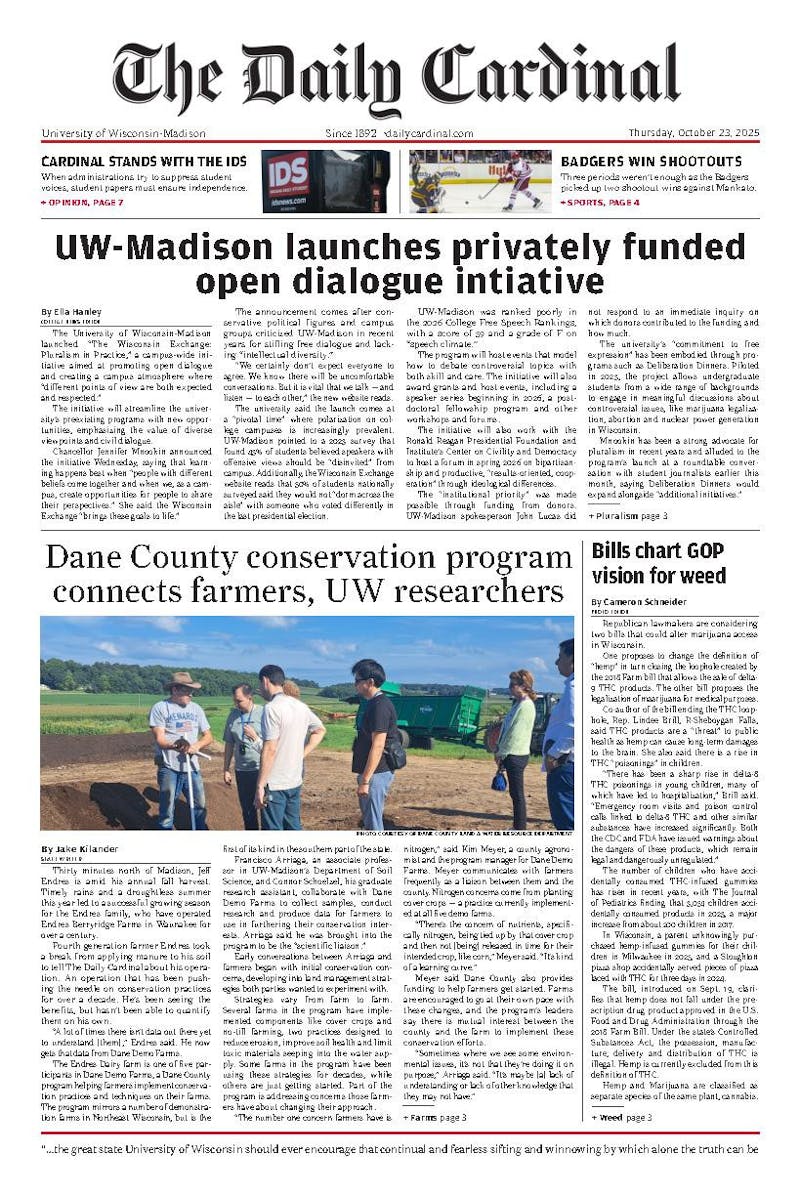Alex Witze, science writer and journalist for Nature and Science News magazines, is on UW-Madison’s campus this week to discuss how to be a reporter in the current world of journalism and science.
Witze is joined by husband and fellow science writer Jeff Kanipe as they speak to classes on campus about their profession, emphasizing how reporting on science differs from reporting on politics, sports or other topics. “Hopefully visiting classes, with both of our perspectives, can help students to think about science writing as a career,” Witze said. She said although job opportunities are shrinking in the field of journalism, reporting on science is important. Kanipe and Witze collaborated on a book released in 2014 titled “Island on Fire,” written about the Laki volcano eruption of 1783 in Iceland. She called this piece of work her proudest accomplishment as a science writer.
“Writing a book was a big thing, it’s a lot of words, and telling the story of a volcano that erupted many years ago was a huge challenge...but we pulled it off,” Witze said.
After receiving her bachelor’s degree at MIT, Witze had a professor recommend science writing as an option to consider after graduation. Upon this advice, she attended the University of California, Santa Cruz to receive a certification in science communication.
Witze won the Kavli Science Journalism Award from the American Association for the Advancement of Science in 2015 for her work in science journalism.
She has also received recognition from both the American Institute of Physics and the National Association of Science Writers.
In light of Earth Day later this week, Witze commented on the importance of increasing awareness regarding climate change.
“It is easy to forget the problems facing the planet,” Witze said. “Earth Day reminds us every year that we are facing these issues, and the kinds of things we should be thinking about.”
In addition to talking to classes over the week, Witze will be giving a speech to the general public about her book and field, “Adventures in science journalism: A Nature correspondent on reporting from the North Pole to the Guatemalan jungle” April 19 at 4 p.m. in Grainger Hall.






